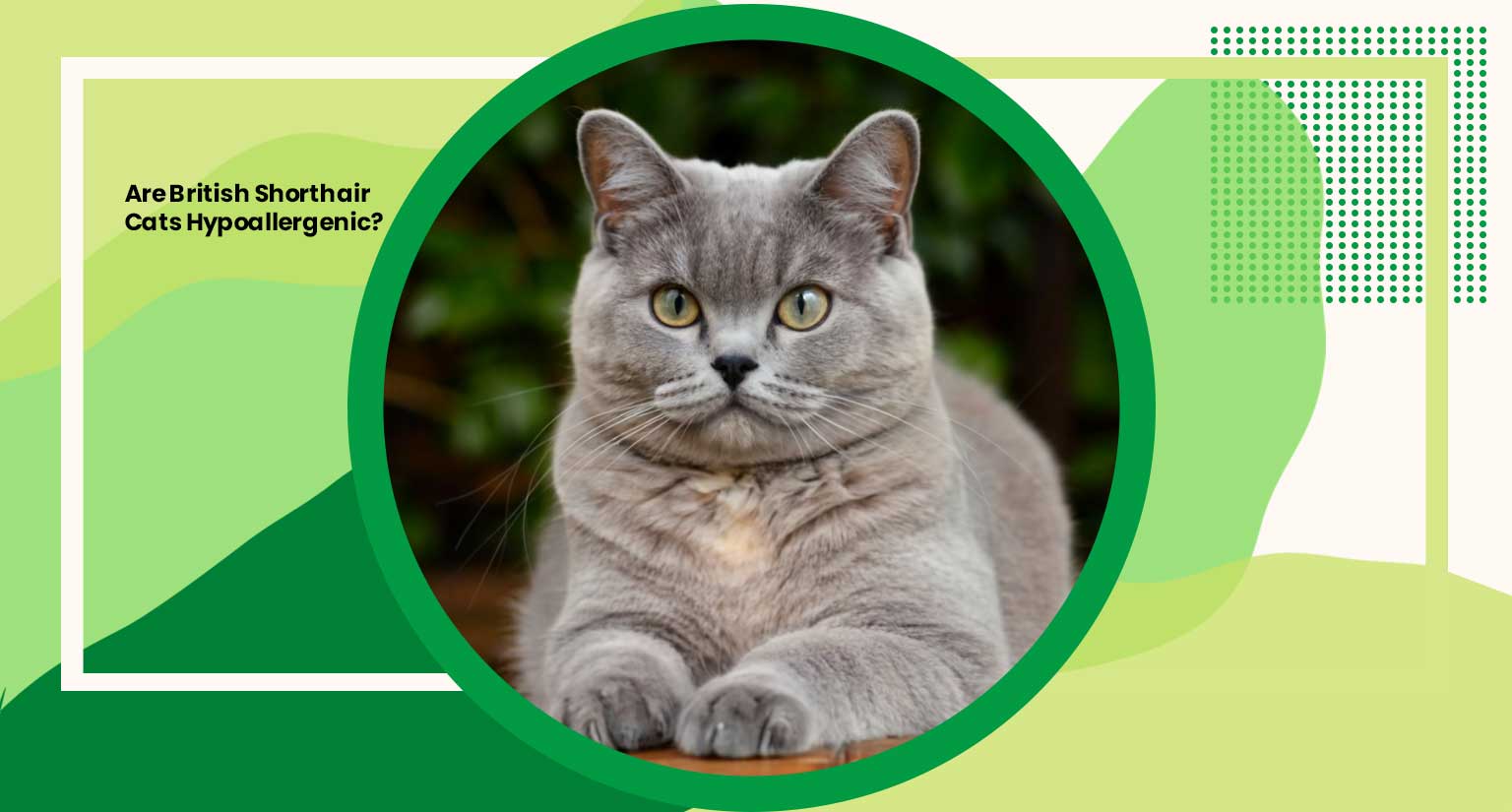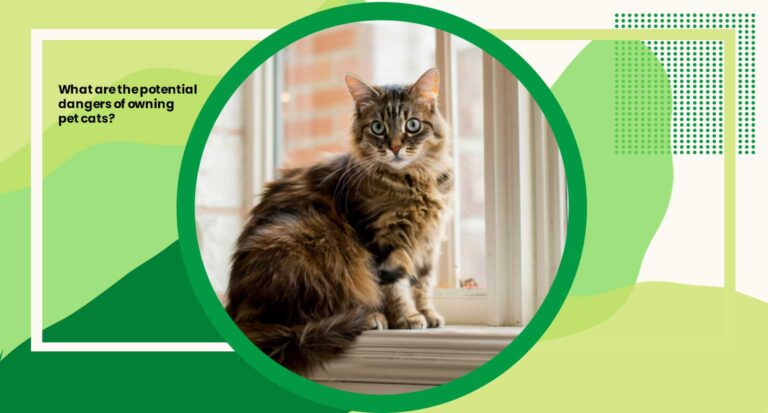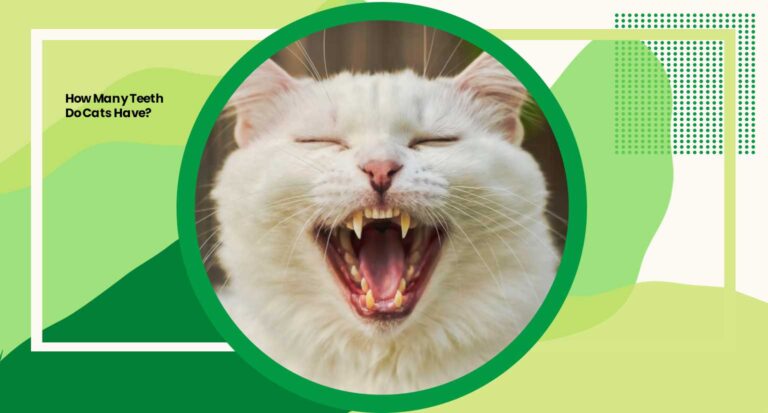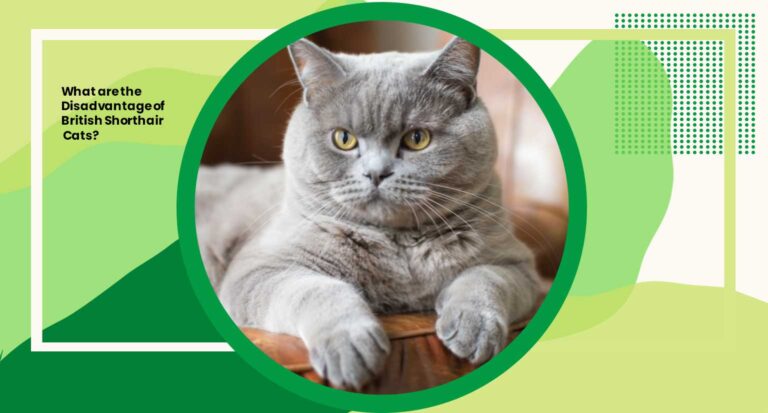Are British Shorthair Cats Hypoallergenic: 7 Key Facts You Need to Know
In the world of feline enthusiasts, British Shorthair cats hold a special place. Their distinctive appearance, characterized by a robust build and plush coat, has captured the hearts of many. However, amidst the admiration for these charming companions, a pertinent question arises,
Are British Short hair cats hypoallergenic? This query is crucial for individuals seeking feline companionship without the discomfort of allergies. This topic in depth, shedding light on whether British Shorthairs offer a hypoallergenic solution for cat lovers.
Are British Short hair Cats Hypoallergenic?
The Myth of Hypoallergenic Cats
Before delving into the specifics of British Shorthair cats and their hypoallergenic properties, it’s essential to debunk a common misconception, the idea of hypoallergenic cats. While some breeds may produce fewer allergens than others, no cat breed is entirely hypoallergenic. Allergies to cats are typically triggered by proteins found in their saliva, urine and dander, rather than their fur.
Production of Allergenic Proteins
British Shorthair cats, like all other cat breeds, produce allergenic proteins known as Fel d 1 and Fel d 4. These proteins are primarily secreted in a cat’s saliva and sebaceous glands, respectively and can be transferred to their fur during grooming. Despite their dense and plush coats, British Shorthair cats still shed dander and saliva coated particles, contributing to allergen exposure.
Shedding and Dander Production
While British Shorthair cats may shed less than some other breeds due to their dense fur, they are not entirely hypoallergenic. All cats shed dander, which consists of tiny flecks of skin and this dander can carry allergenic proteins. Although British Shorthairs may produce less dander compared to breeds with longer hair, they still pose a risk of triggering allergic reactions in susceptible individuals.
Individual Allergy Tolerance
Individual tolerance to cat allergens can vary significantly among allergy sufferers. Some individuals may experience severe allergic reactions to all cat breeds, including British Shorthairs, while others may tolerate certain breeds better than others. Factors such as genetics, frequency of exposure and overall health can influence an individual’s allergy tolerance level.
British Shorthair Characteristics
While British Shorthair cats boast a dense and plush coat, their hypoallergenic status remains questionable. These cats do shed, albeit less than some other breeds and they still produce the same allergenic proteins found in other felines. However, some allergy sufferers report fewer reactions to British Shorthair cats compared to other breeds, suggesting that individual tolerance levels may vary.
Factors Affecting Allergenicity
Several factors contribute to the allergenicity of British Shorthair cats, including grooming habits, genetics and environmental factors. Regular grooming and bathing can help reduce the amount of dander and saliva on a cat’s fur, potentially minimizing allergic reactions. Additionally, genetic variations may influence the production of allergenic proteins, although research in this area is ongoing.
In summary, while British Shorthair cats may be considered more hypoallergenic than some other breeds due to their lower shedding tendencies, they are not entirely allergen free.
Individuals with cat allergies should exercise caution and consult with allergists before bringing any cat into their home, including British Shorthairs. Ultimately, the decision to adopt a British Shorthair cat should be based on careful consideration of one’s allergies, lifestyle and ability to manage potential allergen exposure.
Managing British Shorthair Cat Allergies: Strategies and Solutions
Understanding Allergy Management
For individuals who adore British Shorthair cats but struggle with allergies, managing cat allergens effectively is paramount. While complete eradication of allergens is impossible, implementing strategies to minimize exposure can significantly alleviate symptoms and enhance quality of life.
Regular Grooming and Bathing
One of the most effective ways to reduce cat allergens is through regular grooming and bathing of British Shorthair cats. Bathing can help wash away allergens present on the cat’s fur, while brushing helps remove loose hair and dander. It’s essential to use cat friendly grooming products and consult with a veterinarian for guidance on proper grooming techniques.
Creating Allergy Free Zones
Designating certain areas of the home, such as bedrooms or living spaces, as allergy free zones can provide relief for allergy sufferers. Investing in high quality air purifiers equipped with HEPA filters can help capture airborne allergens, creating cleaner air in designated areas. Additionally, using allergen proof covers on furniture and bedding can prevent allergen accumulation.
Minimizing Contact with Allergens
Limiting direct contact with British Shorthair cats can help reduce allergen exposure. Encouraging cats to stay off furniture and beds, as well as washing hands after handling cats, can minimize allergen transfer. Wearing allergen proof clothing, such as long sleeves and gloves, while interacting with cats can also be beneficial.
Allergy Immunotherapy
Allergy immunotherapy, commonly known as allergy shots, is a long term treatment option for cat allergies. This therapy involves administering gradually increasing doses of allergens to desensitize the immune system over time. While allergy shots require commitment and patience, they can provide lasting relief for individuals with severe cat allergies.
Consultation with Allergists and Veterinarians
Seeking guidance from allergists and veterinarians is essential for developing a comprehensive allergy management plan tailored to individual needs. Allergists can conduct allergy testing to identify specific triggers and recommend appropriate treatments, while veterinarians can offer advice on caring for British Shorthair cats and minimizing allergen exposure.
While managing British Shorthair cat allergies requires dedication and effort, it is possible to enjoy the companionship of these charming felines while minimizing allergic reactions.
By implementing proactive strategies such as regular grooming, creating allergy free zones and exploring allergy immunotherapy, individuals can find relief and enhance their bond with their beloved British Shorthair cats.
Conclusion
In conclusion, while British Shorthair cats may have lower shedding tendencies and produce less dander compared to some other breeds, they are not hypoallergenic. The presence of allergenic proteins in their saliva and dander means that they can still trigger allergic reactions in susceptible individuals.
Understanding the realities of cat allergies and implementing appropriate management strategies is crucial for individuals considering British Shorthair cats as companions.
Ultimately, the decision to adopt a British Shorthair cat should be based on careful consideration of one’s allergies, lifestyle and ability to manage potential allergen exposure. While these charming felines may not be hypoallergenic, they can still bring joy and companionship to households willing to accommodate their needs.







